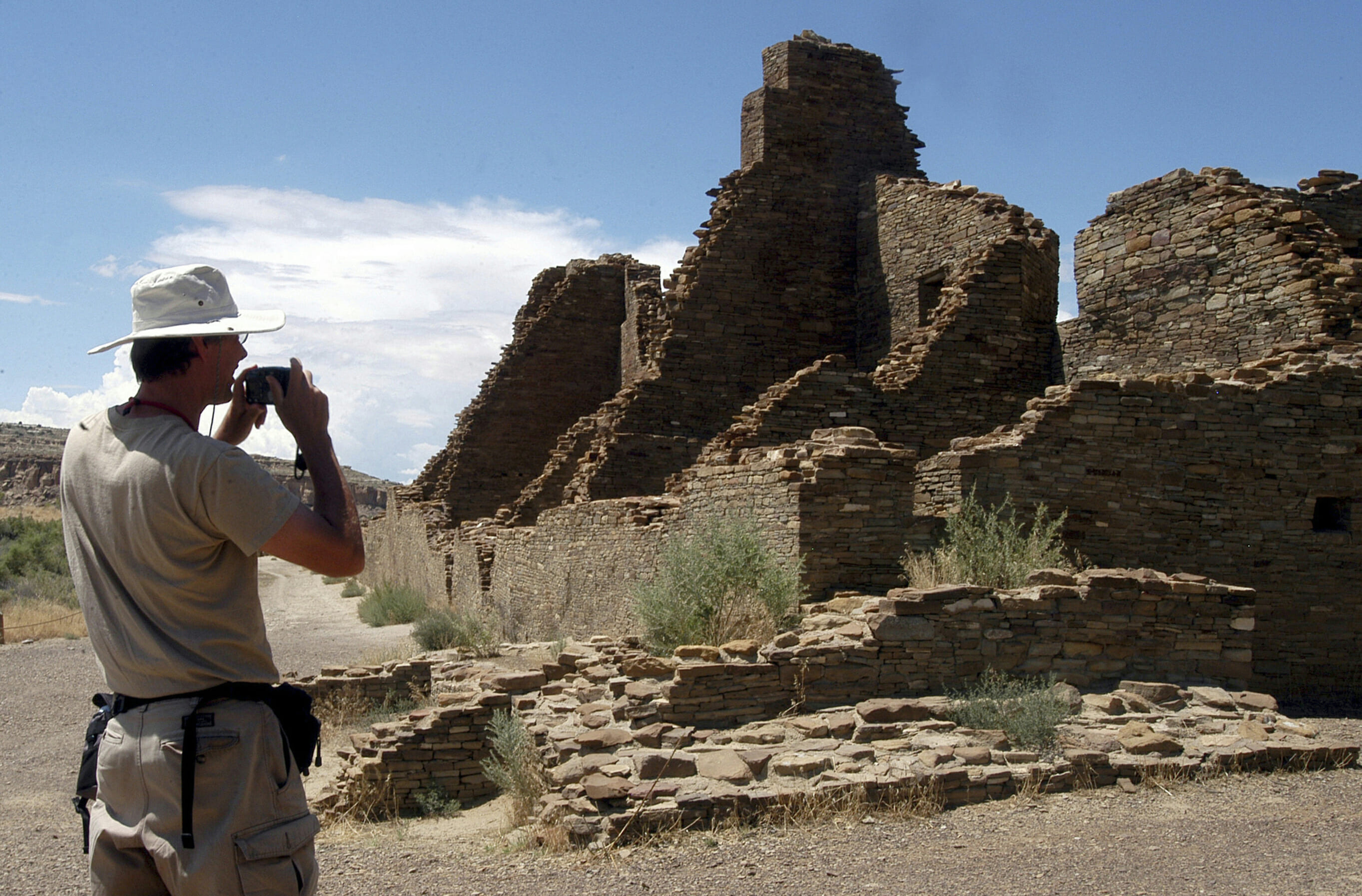
US lawmakers seek to protect national park in New Mexico
SANTA FE, N.M. (AP) — A renewed effort was launched Tuesday to halt federal leases for oil and natural gas development near a national park in New Mexico held sacred by Native Americans.
Four members of New Mexico’s all-Democratic congressional delegation introduced legislation to prohibit the expansion of mineral development on federal inholdings within a roughly 10-mile (16-kilometer) radius surrounding Chaco Culture National Historical Park.
According to the delegation, federal mineral rights span about 500 square miles (1,300 square kilometers) within the proposed buffer zone — a checkboard of federal, state, tribal and private land.
The park’s ancient, astronomically aligned dwellings and roadways are an international attraction, and many Native American communities trace their ancestry and traditions to the area.
“This special place should not be under constant threat of destruction,” Sen. Tom Udall said.
Navajo Nation President Jonathan Nez and local tribal pueblo leaders joined lawmakers on a conference call to endorse the bill. Proposed restrictions on energy development would not apply to Native American or private holdings. Similar federal legislation was introduced in 2018.
The bill’s future remains uncertain in the GOP-controlled Senate. Sens. Udall and Martin Heinrich were asked whether they had spoken with Interior Secretary David Bernhardt, whose agency oversees the Bureau of Land Management and mineral exploration in the region.
“I believe the administration knows very well my position in terms of leasing within the 10-mile buffer, and I hope that they’ll honor that,” Udall said. Heinrich did not comment.
A moratorium on new leases of state trust holdings in the Chaco area is being prepared by State Land Commissioner Stephanie Garcia Richard, who announced she will sign the measure April 23.
Supporters of the federal legislation say they want to protect the sense of remoteness that comes with making the journey to Chaco. They are also concerned about the preservation of ancient stone structures and other features outside the national park’s boundaries.
Newly elected U.S. Rep. Debra Haaland, a tribal member of Laguna Pueblo, embraced the proposed drilling restrictions.
“Chaco Canyon was my ancestral homeland and remains a living landscape,” she said on a group call with reporters. “It’s a place where New Mexico families make memories, and families from all over the world make memories.”
Federal land managers repeatedly have deferred any interest by the oil and gas industry in parcels that fall within the buffer. Still, tribes and others are concerned that energy companies keep nominating parcels for possible inclusion in quarterly lease sales held by the Bureau of Land Management. They say a permanent buffer would prevent that.
Michael Chavarria, vice chairman of a coalition of 20 pueblo governors, said concerns about preserving scattered Chaco cultural sites extend beyond the 10-mile buffer outlined in the proposed legislation.
The bill also emphasizes the federal government’s obligation to consult with tribes.
The industry has said existing federal laws and policies require extensive environmental and cultural reviews before drilling can happen.
“If artifacts are found, oil and gas development doesn’t happen there. It’s that clear cut,” said Robert McEntyre with the New Mexico Oil and Gas Association. “I think we lose sight of the fact that we have these processes built in, there’s a boundary around artifacts that have been designated as culturally significant and we respect those boundaries.”
___
Associated Press writer Susan Montoya Bryan in Albuquerque contributed to this story.
The Western Journal has not reviewed this Associated Press story prior to publication. Therefore, it may contain editorial bias or may in some other way not meet our normal editorial standards. It is provided to our readers as a service from The Western Journal.
Truth and Accuracy
We are committed to truth and accuracy in all of our journalism. Read our editorial standards.
Advertise with The Western Journal and reach millions of highly engaged readers, while supporting our work. Advertise Today.












